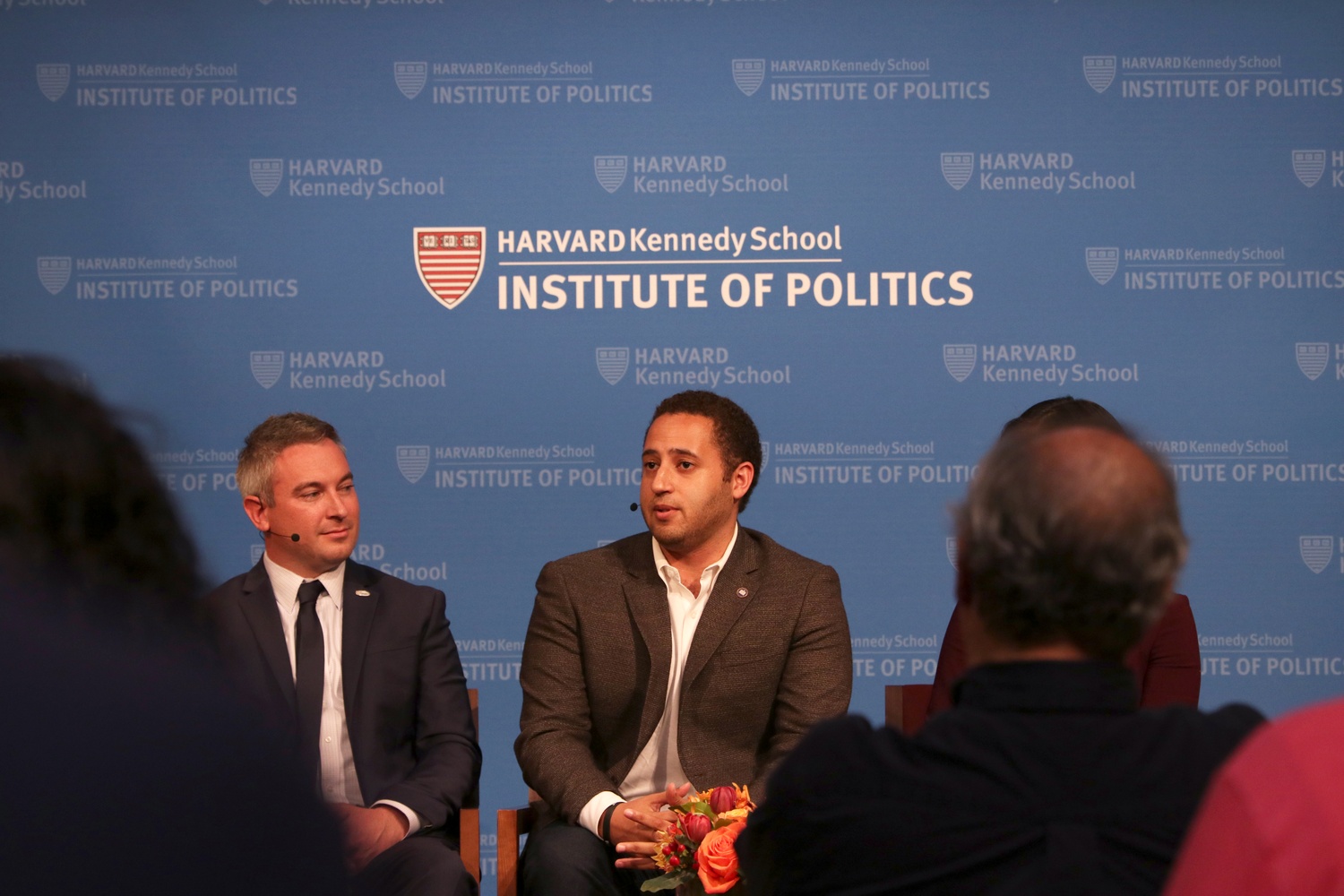
News
Summers Will Not Finish Semester of Teaching as Harvard Investigates Epstein Ties

News
Harvard College Students Report Favoring Divestment from Israel in HUA Survey

News
‘He Should Resign’: Harvard Undergrads Take Hard Line Against Summers Over Epstein Scandal

News
Harvard To Launch New Investigation Into Epstein’s Ties to Summers, Other University Affiliates

News
Harvard Students To Vote on Divestment From Israel in Inaugural HUA Election Survey
Young Politicians at Harvard IOP Have a Message for Millennials: It's ‘Time for a Change’

Harvard's Institute of Politics hosted young politicians serving across the country Friday to encourage millennial involvement in politics.
The panel, entitled “Millennials and the Future of American Politics,” featured five state and local public officials who discussed their experiences and difficulties navigating politics at a young age. They also emphasized the potential millennials have as political outsiders.
Elected at age 28, Michelle Wu ’07, the president of the Boston City Council, acknowledged that many voters are hesitant to support young candidates.
“When you’re young, you could be too ambitious, or rash, or not ready,” Wu said. Of all the barriers to her candidacy — including her gender, race and age — she said youth was “the most salient.”
Yet, Eric P. Lesser ’07, a Massachusetts state senator first elected at 29, pointed to what he called “the single most powerful argument in politics right now” as a unique advantage for millenials with political aspirations: “that it is time for a change.”
“As a young person right now, you are perfectly poised to make that argument that you are not part of that entrenched structure that got us in the mess we’re in,” he explained.
Lesser and Wu were joined by Lange P. Luntao ’12, the youngest board member of the Stockton Unified School District; Svante L. Myrick, the mayor of Ithaca, N.Y., elected at age 24, after serving on city council since he was a junior at Cornell; Ryan F. Quarles, the Kentucky agriculture commissioner, elected at age 34 and the youngest elected statewide official in the nation.
Eloise T. Kaehny ’19, the chair of the IOP National Campaign, talked about her recent initiative working with students nationwide to increase voter participation at universities.
“Students are starting to care about issues and are moving away from party titles,” Kaehny agreed. “[We] are realizing how much potential we have as a bloc and are ready to step up.”
The panelists also focused on state-level politics and urged budding politicians to pursue opportunities in local politics.
“I get to work everyday for people who feel, and frankly, are invisible to decision makers,” Lesser said. “That’s a feeling you’d never get working in national politics.”
Students left the event saying they felt inspired. “The humor, the people, just the optimism — it was really great,” Evelyn R. Cai ’22 said. “Millennials right now are organizing around issues, as [the panelists] said, so they have to be optimistic about the outcome of their efforts.”
“It’s really great to see how low the barrier is for young people to make an impact on the front, in jumping in leading the organizations instead of just working quietly in the background,” Chris T. Cantwell ’22 said.
As for entering politics himself, Cantwell added, “it’s something I saw that maybe I’d do years down the line, but maybe I don’t have to wait so long.”
Want to keep up with breaking news? Subscribe to our email newsletter.
